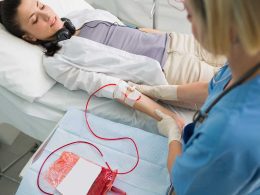Introduction: Muscle soreness can be a common occurrence after intense physical activity or due to certain medical conditions. However, there are several effective strategies you can implement to alleviate muscle pain and promote faster recovery. In this article, we will discuss practical tips and techniques to help you say goodbye to soreness and regain comfort in your muscles.
- Rest and Recovery: One of the most important steps in relieving muscle soreness is to allow your body ample time to rest and recover. Avoid overexertion and give yourself time to heal. Adequate rest allows your muscles to repair and rebuild, reducing pain and inflammation.
- Apply Heat or Cold Therapy: Applying heat or cold therapy can provide significant relief from muscle soreness. For acute injuries or sudden pain, ice packs or cold compresses help reduce inflammation and numb the area. Conversely, heat therapy, such as warm showers or heating pads, increases blood circulation, relaxes muscles, and alleviates stiffness.
- Gentle Stretching and Massage: Engaging in gentle stretching exercises can help alleviate muscle pain by improving flexibility and increasing blood flow to the affected areas. Incorporate stretching routines that target the specific muscle groups experiencing soreness. Additionally, massaging the sore muscles can enhance blood circulation and ease tension, leading to pain relief.
- Stay Hydrated: Dehydration can exacerbate muscle soreness, so it’s essential to stay properly hydrated. Drinking an adequate amount of water helps flush out toxins and facilitates efficient muscle recovery. Aim to consume at least eight glasses of water per day, and increase intake during physical activity or in hot weather.
- Use Over-the-Counter Pain Relievers: Over-the-counter pain relievers such as ibuprofen or acetaminophen can be effective in managing muscle pain. However, it’s crucial to follow the recommended dosage and consult a healthcare professional if you have any underlying medical conditions or are taking other medications.
- Try Natural Remedies: Certain natural remedies have shown promise in relieving muscle soreness. For example, applying arnica gel or using essential oils like lavender or peppermint for massage can provide soothing effects. However, it’s advisable to consult with a healthcare professional before trying any new remedies.
- Get Sufficient Sleep: Adequate sleep plays a crucial role in muscle recovery and overall well-being. Aim for seven to nine hours of quality sleep each night. During sleep, your body repairs damaged tissues and releases growth hormones, aiding in the healing process and reducing muscle pain.
- Gradually Increase Physical Activity: If you’re engaging in exercise or physical activity, it’s important to gradually increase the intensity and duration to avoid excessive muscle soreness. Start with lighter workouts and slowly progress over time to allow your muscles to adapt and become stronger.
Conclusion: Muscle soreness can be a hindrance to your daily activities and overall well-being, but with the right strategies, you can effectively manage and alleviate the pain. By incorporating rest, heat or cold therapy, stretching, hydration, pain relievers, natural remedies, sufficient sleep, and a gradual approach to physical activity, you can say goodbye to soreness and welcome a healthier, pain-free body. Remember to listen to your body and seek medical advice if the pain persists or worsens.












